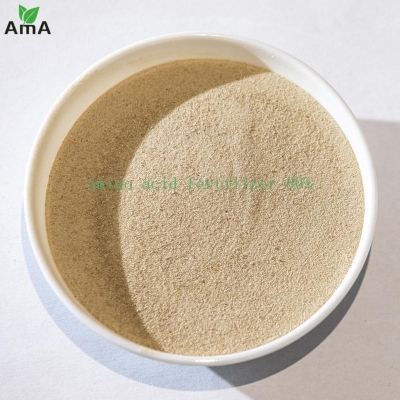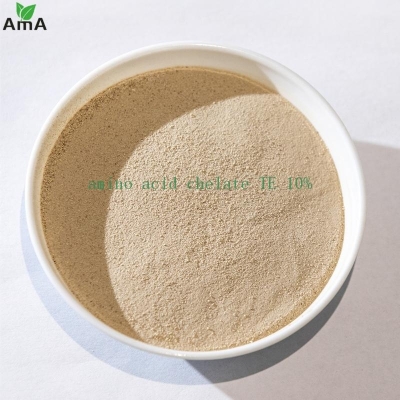Progress of FDA hatch Waxman public meeting and drug competition action plan - I
-
Last Update: 2017-07-20
-
Source: Internet
-
Author: User
Search more information of high quality chemicals, good prices and reliable suppliers, visit
www.echemi.com
Source: Zhilin 2017-07-20 on July 18, 2017, the US FDA held a highly anticipated public meeting to discuss the balance between drug competition and innovation The conference, entitled "implementing the hatch Waxman Amendment: ensuring the balance between innovation and accessibility", received a great response from industry and dozens of non FDA or FTC speakers Scholars, healthcare payers and providers, drug developers and relevant representatives, as well as representatives of consumers and patients, all provided opinions to the FDA and hatch Waxman expert group FDA director Scott Gottlieb discussed the FDA position at the beginning of the meeting and announced that two new documents are expected to be released in 2017 as part of the drug competition action plan released earlier this year to improve the generic drug approval process The first document, the good anda assessment policy procedures manual (MAPP), will be an internal CDER policy that simplifies the Anda review process within the FDA without lowering the approval criteria As part of the MAPP, a full response letter will identify areas where improvements are needed to get approval The second document, "anda submission quality management guide" will point out common duplicate defects in Anda and provide suggestions to avoid these defects, so as to ensure better and higher quality submissions Dr Gottlieb explained that the goal of his drug competition action plan is to ensure that the competition expected by Congress when it passed the hatch Waxman amendment can actually be achieved Although the FDA has no direct role in drug pricing, Gottlieb explained that accelerating drug development should lead to lower drug prices To do so, Gottlieb said, the FDA needs to address the loopholes in the drilling system that prevent generic drugs from going on the market, which can undermine the balance between affordability and innovation Therefore, FDA hopes to identify scientific or regulatory barriers that will help ensure competition, ease the entry of generic drugs into the market, and improve the efficiency of generic drug review Janet Woodcock, director of CDER, also discussed the FDA's role in maintaining the balance set by Congress in the hatch Waxman amendment Dr Woodcock emphasized the progress of CDER in the past five years, as well as the new challenges: building "consistency" of non-traditional complex drugs, drug and equipment combination products, and creating biological similar drug routes While addressing these issues, Woodcock stressed the importance of establishing a "root cause" of lack of competition to avoid drug shortages or rising drug prices Markus Meier of the competition bureau of the Federal Trade Commission (FTC) also made a speech, highlighting the intersection between FDA and FTC Most of the presentations addressed questions raised by the FDA at the Federal Register notice meeting The speech of the representatives of the patient advocacy organization and the generic industry focused on: preventing the potential use of the generic competition through the persistent sharing of REMS negotiations; innovators refusing to provide samples to the generic manufacturers; introducing slightly improved new patented products, and then revoking the patents, that is, the practice of expired old products (known as "product jump, product Hopping ", incremental innovation, or the term" patent evergreen "that seems to be reused, abuses the possibility of citizen petition procedures to delay approval of generic drugs; paid delay agreements (i.e., patent companies pay fees to generic companies, which promise not to manufacture or sell cheap generic drugs within the term of the agreement) Instead, innovators see "incremental innovation" as the core of future research and development, and say they are afraid to take responsibility and refuse to provide samples At the same time, they lamented the deterioration of patents and market franchises, citing the need to revise incentives In addition to comments from meeting participants, some written comments have been submitted to the file In fact, former congressman Henry Waxman also submitted his comments His comments provided the FDA with a recent Commonwealth Fund report entitled "the root cause of high drug prices." In addition to the areas highlighted in the Federal Register notice, representative Waxman recommended that the FDA allow the re import of drugs from single source suppliers, monitor the drug market to identify conditions that could lead to shortages or other causes of significant price increases, accelerate review, and allow early disclosure of patents for generic and bioequivalent drug manufacturers Consumers and other individuals who spoke at the meeting also submitted comments in advance FDA will receive the review by September 18, 2017 As expected, quite a number of speeches deviated from the track of hatch Waxman to discuss biological analogues Others talk more about general market competition and focus on areas where FDA really can't do anything, such as integrating buyers But the FDA panel is trying to redirect the conversation to issues that are under consideration and that FDA can actually address Members of the FDA expert group took an active part in the discussion and discussed many speakers' issues FDA seems to focus on practical answers to FDA questions rather than theoretical competition policies or industry lists of questions As can be seen from the questions raised, FDA is looking for specific tools to solve these competitive problems without sacrificing innovation incentives The FDA panel's questions, along with director Gottlieb's opening remarks, show how serious the FDA sees the problem Members of the FDA panel pushed some speakers to determine whether their recommendations were practical, such as asking citizens to petition for preliminary results that might have been granted, or that reformulated products should demonstrate benefits in supplementary applications that had previously been approved We will continue to sort out and report on all views on this meeting.
This article is an English version of an article which is originally in the Chinese language on echemi.com and is provided for information purposes only.
This website makes no representation or warranty of any kind, either expressed or implied, as to the accuracy, completeness ownership or reliability of
the article or any translations thereof. If you have any concerns or complaints relating to the article, please send an email, providing a detailed
description of the concern or complaint, to
service@echemi.com. A staff member will contact you within 5 working days. Once verified, infringing content
will be removed immediately.







